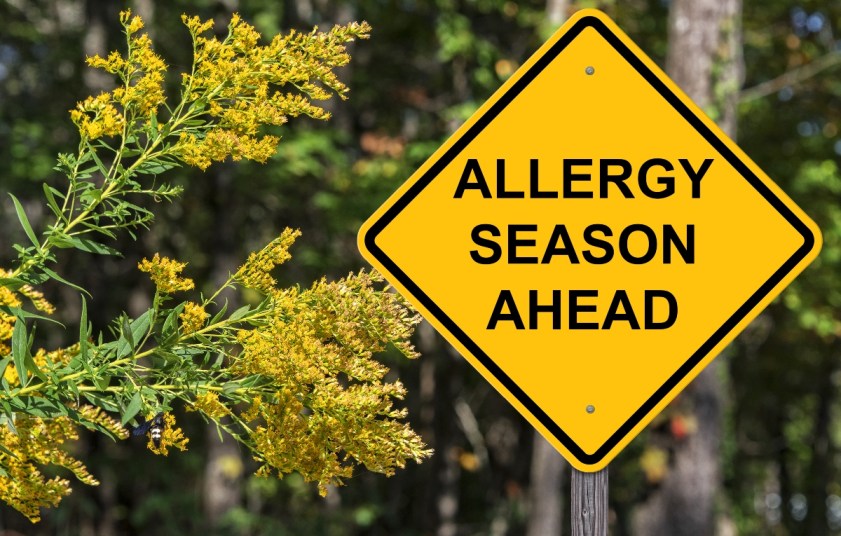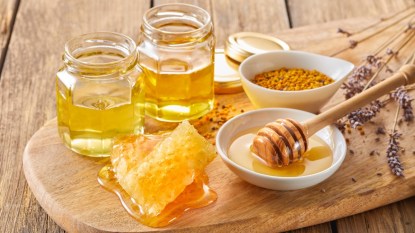It’s That Itchy Time of Year! Outsmart Spring Allergies With 4 Natural Tricks
Sneeze no more.

Now that spring is finally here, we’re eager to get out and about. But for those of us who suffer from allergies, symptoms such as sneezing, congestion, itchy eyes, and headaches often slow us down. And while over-the-counter allergy medications abound, research conducted at UC San Diego reveals that in many cases, they fail to offer the relief women seek. Luckily, these four simple, natural strategies offer benefits on their own or in addition to OTC meds.
Cook with this colorful spice.
Turmeric makes a tasty addition to everything from scrambled eggs to salad dressings to rice dishes. And the curcumin it contains may have a natural antihistamine action. In a clinical trial whose results were published in the Annals of Allergy, Asthma & Immunology, curcumin was found to improve nasal airflow and symptoms like sneezing and rhinorrhea. Try adding 2 to 3 teaspoons of turmeric daily to your diet. Tip: When cooking with turmeric, add a few pinches of black pepper; a trial published in Planta Medica found its piperine may enhance curcumin absorption.
Don a pair of sporty shades.
Airborne pollen that gains access to eyes during the day does more than just irritate your peepers — it can also trigger stuffiness that persists throughout the night, disrupting your sleep. But a trial whose results were published in The International Forum of Allergy & Rhinology found that slipping on a pair of wraparound sunglasses when heading outside may help block pollen. Also smart: whisking away any pollen that’s crept around sunglasses by cleansing your eyelids and lashes with warm water and baby shampoo twice daily.
Relax with a cup of green tea.
Sipping two cups of green tea daily may reduce allergy symptoms like a runny nose and scratchy throat, a study in Allergology International suggests. The brew’s EGCG has the potential to inhibit the release of substances such as histamine, immunoglobulin E, and leukotrienes that trigger symptoms. Try drinking unflavored green tea and adding your own lemon or sweetener; flavored green tea may be made from lower-quality tea leaves, which is why USDA experts say unflavored “pure” green tea has more EGCG.
Try an ancient Indian herb.
The East Indian herb Tinospora cordifolia (a.k.a. guduchi) may help combat the out-of-control immune response that sets allergy symptoms in motion. Plus, it lowers levels of mucus-producing goblet cells in nasal passages. That’s why a study published in The Journal of Ethnopharmacology found that taking tinospora daily eliminated sneezing in 83 percent of participants, while eradicating nasal congestion in many others. One to try: Swanson Premium Full Spectrum Guduchi.
This content is not a substitute for professional medical advice or diagnosis. Always consult your physician before pursuing any treatment plan.
A version of this article originally appeared in our print magazine, Woman’s World.













